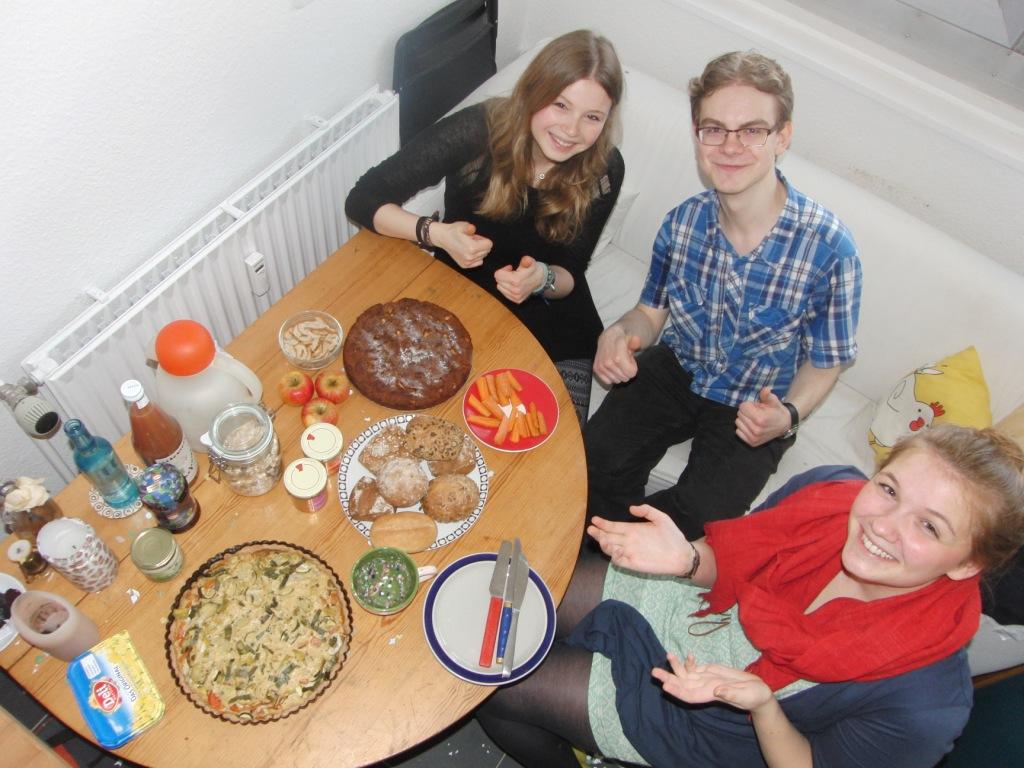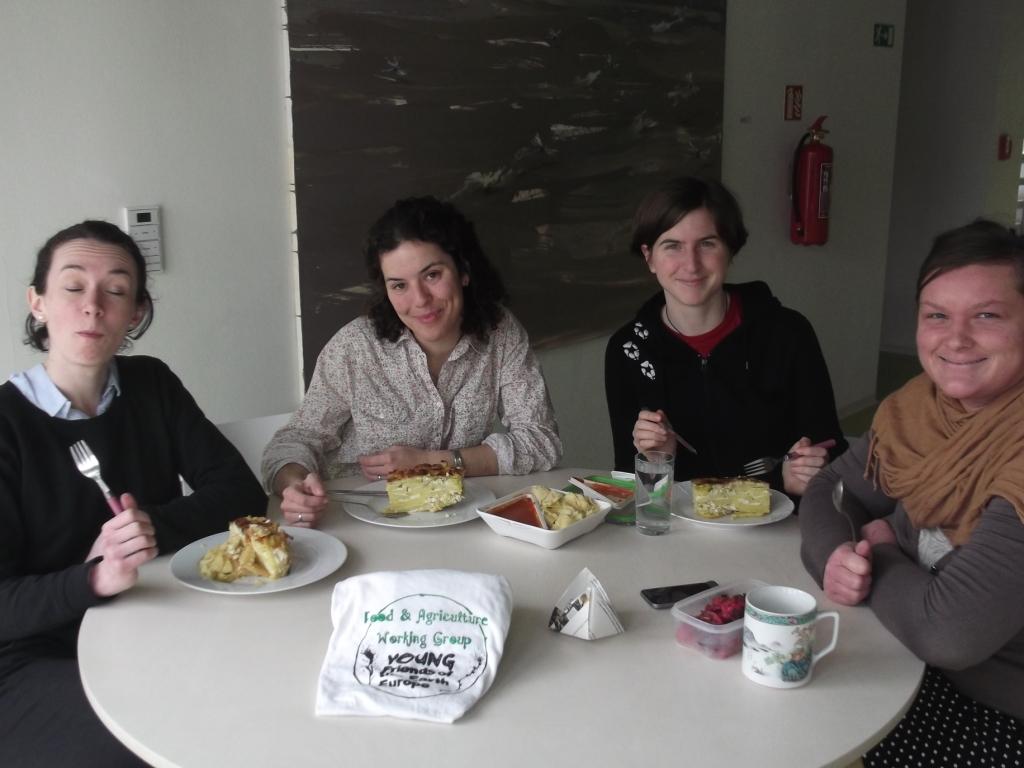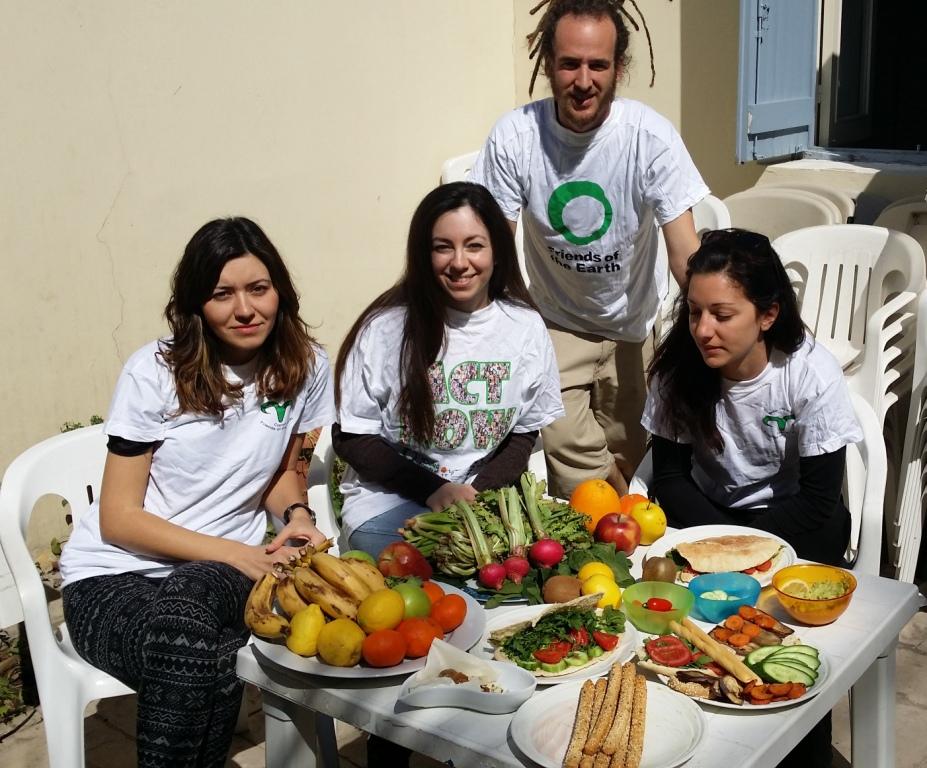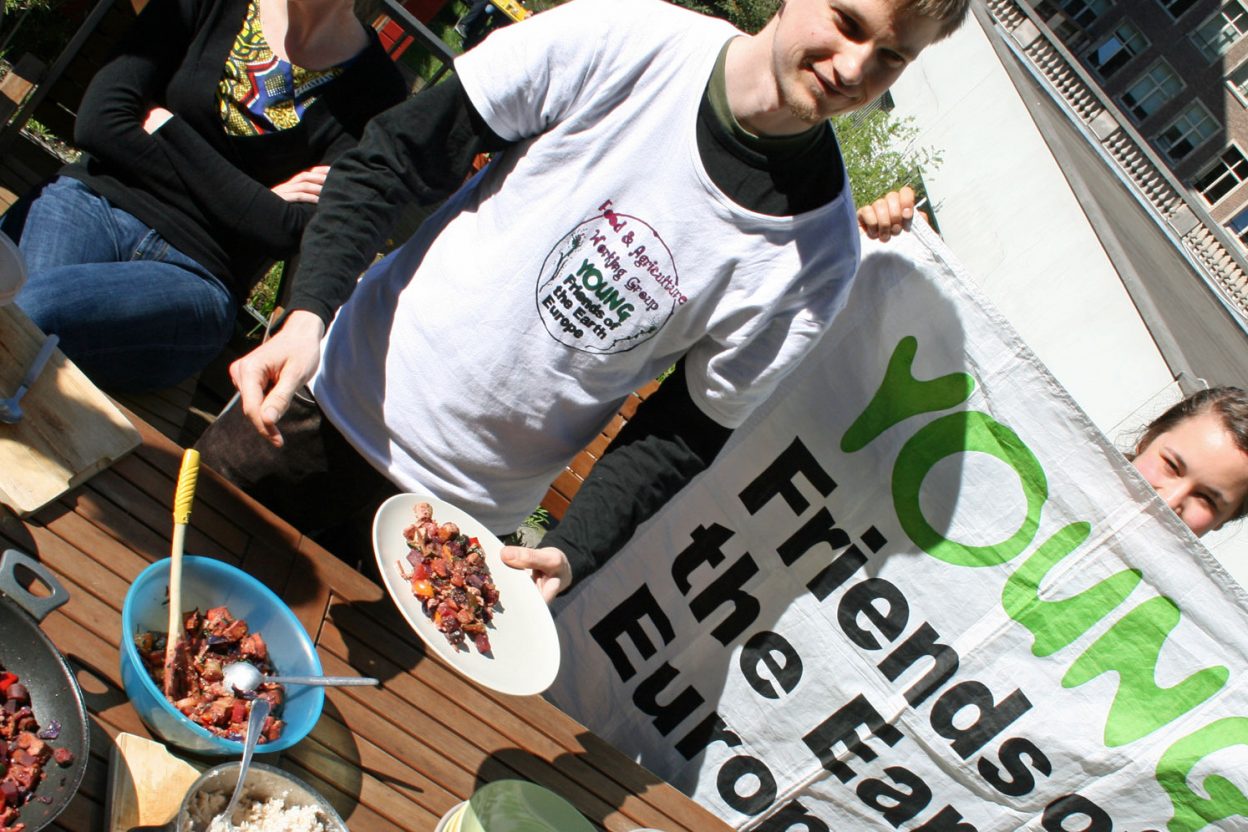The answer is no, but they sure have some great skills when it comes to taking pictures of delicious meat-free food!
The Young Friends of the Earth Europe food and agriculture working group showed that going vegetarian not only reduces your carbon footprint in terms of water and other resources, saves animals, contributes to wellbeing, and tastes great! And don’t forget! Today is – what a coincidence – International Earth Day!

Join us on a meat-free day!
Did you know that there are so many health hazards associated with animal products? In the past, meat was produced in a more natural way than it is today and therein lays the problem. Fat is another health hazard of both meat and dairy products; especially saturated fat. The meat on the market today has a much higher concentration of this fat than it had years ago. The reason for this is that animals are raised in incorrect environments where they get little to no exercise. Without being able to move about they become ever fatter and the fat in their bodies builds up to dangerous level-both for humans and for the animals themselves. Research shows that vegetarians are less likely to develop type 2 diabetes, heart disease, hypertension and many type of cancers. Vegetarians are also less likely to have a lower average body mass index (BMI).

Finally, meat and dairy products can be very hazardous to your health due to the antibiotics the animals are given. The cows are treated with antibiotics and they are definitely dangerous for humans. Another strong example is the milking of the cows. On large dairy farms the cows are milked by machines. Imagine having your nipples tugged at with a cold machine at all times of the day. They would be sore and cracked. It is no different for cows. Their breasts become infected and pus and infections come right out into the milk. Bad news: The milk may be pasteurized, but guess what? Pus is still there, legally! Knowing all of this should be a real eye opener, and if you are not already vegetarian, we hope you might be considering it by now!
Getting Started
If you are thinking of giving up meat and start following a vegetarian diet you may find that it seems impossible in the beginning. However, even though this is a major lifestyle change, it does not have to be as difficult as you may imagine.

The first thing to know when starting a vegetarian or vegan diet is that you may need more food to feel satisfied in the early days of your new life. This is a source of fear for some people. They worry that since they are eating more they will also be gaining more weight. The truth is though, that if you are eating more fruits and vegetables (which are in line with your new diet) then you are on the right track. It takes more of these items to fill you up than it does when you eat animal products. This is because vegetarian foods aren’t as calorie dense as meat and dairy foods and they’re not that digestible either. So, even though you are eating more you are not gaining more weight (only more nutrients!) and you will soon get used to your new, healthy habits.
Still not sure how to do it?
DOWNLOAD our “Becoming Vegetarian” short guide (here) and start getting healthier from becoming meat-less, more compassionate from saving hundreds of animals per year and also a green hero from reducing your ecological footprint on this planet!
“Nothing will benefit human health and increase chances of survival for life on earth as much as the evolution to a vegetarian diet.” – Albert Einstein
Article and short guide by Anna Cortesi, Young Friends of the Earth Cyprus

